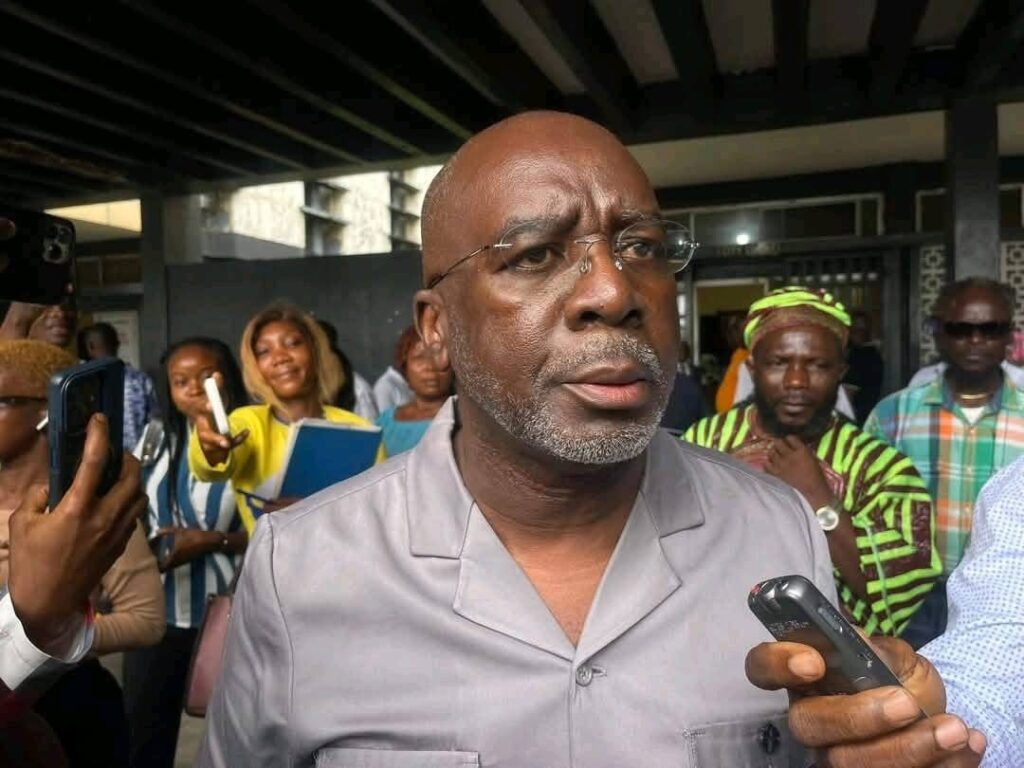Lawyers defending former House Speaker J. Fonati Koffa and three other lawmakers have rejected the government’s use of social media as evidence. They called the evidence “disgusting” and said it cannot be trusted.
At a hearing on Wednesday, June 11, 2025, at the Monrovia City Court, the defense team argued that the social media information the government is using to charge Koffa, Abu Kamara, Jacob Debee, and Dixon Seboe is unreliable.
The state’s second witness, Rafael A. Wilson, a top police investigator, said the evidence was gathered from “open source” social media. But when asked by the defense which specific social media platform the information came from—like WhatsApp, Facebook, Instagram, Telegram, or X—he could not say clearly.
Wilson explained that “open source” means anything already available to the public. He said the police confirmed the evidence when Koffa and Kamara went to the police headquarters. There, Koffa admitted part of a voice recording was his but claimed he wasn’t sure about the rest. Kamara said the audio may have been created using artificial intelligence (AI).
Defense lawyer Cllr. Jonathan Massaquoi asked again where exactly the evidence came from, and Wilson repeated it was from social media. The defense objected, saying the evidence should not be accepted since the source wasn’t clearly identified.
Later, Wilson mentioned that a WhatsApp audio was found on phones belonging to Patrick Hallie and Thomas Etheridge. He said the audio involved lawmakers Koffa, Kamara, and Seboe talking together.
The four lawmakers face serious charges, including arson, attempted murder, and criminal conspiracy.
The court is expected to hear final arguments today, Thursday, June 12, 2025.

